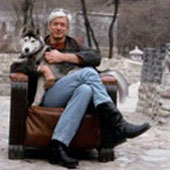China’s New Value Dilemma
Has China's economic success left a spiritual void inside the country?
January 19, 2010
During my years in Beijing, I participated as an outside advisor in China’s reform process — and had long been an advocate of its fresh approach to capitalism (“state capitalism,” as opposed to the IMF and World Bank’s market capitalism).
But I also had concerns about the direction in which China’s economy and social structure were headed.
By 2008, I saw overall deterioration expressed by corruption, crime, prostitution, gambling and alcoholism. It seemed that liquor had become China’s new opium.
So, while China’s economic model had seen the country succeed in material terms, it had left a gaping spiritual void. Quantity of life had displaced quality of life.
The Chinese model of macro-control development had worked very successfully in merging the tools of state planning with the market mechanism. But now, having adopted a Western — almost American — value standard of conspicuous consumption as a measure of human worth, it had become a country where human values were being smothered by greed and where corruption was perpetuated by the desire to accumulate brand-name goods.
How could China now serve as a future model to anyone else?
Part of the problem is that China’s leadership still adheres strictly to a philosophy of dialectical materialism. This is one reason why it has been so easy for Western multinationals to convert the population to consumer-brand fanaticism.
In turn, China has lost much of its own culture over the past decade. In this cultural free-fall state, its leaders are now groping for a way forward. Unfortunately, they have yet to look seriously to their own roots in trying to grow the tree to its next stage.
During the Tang dynasty, the poet Du Fu commented on the social inequities of the time, penning a poem on the debauchery prevalent among corrupt officials and the wealthy:
“Within vermilion gates wine and meat rot, while on the street outside people starve to death.”
Today, the finest seafood in the world and the most expensive imported wines are available in Beijing’s five-star restaurants. Outside, luxury cars disgorge officials and entrepreneurs with their wives or mistresses, who vie for the title of “most expensively dressed” or “most recently returned from an expensive overseas trip” (probably paid for from state coffers as a government “inspection” or “study tour”).
Meanwhile, at the end of 2007, official statistics put the number of impoverished people in rural China who simply do not have enough to eat at 24 million. In addition, 41 million income earners are searching for a way out of their desperate situation.
Crime, drug use, prostitution and even human slavery rackets have now become pillar industries of the Chinese economy. If one were to raise the problem with Beijing officials dining in the posh Maison Boulud à Pékin, Beijing’s first Michelin-rated restaurant, they would likely simply wave away these issues as problems of the waidi ren, “those rural outsiders.”
China’s new class system now appears to be more about caste than class.
The Central Committee of the Communist Party of China (CPC) is not unaware of the challenges. It has held a symposium of various interest groups, including the All-China Federation of Industry and Commerce, so-called democratic parties and a host of non-communist social representatives.
The purpose of summoning so many groups from across the board was to discuss how to cope with the issue of “reforming and standardizing income.”
That might have been seen as a massive lobbying effort to keep a social pact between the CPC and the rest of society — given that it is mostly government officials and the managers of state-owned enterprises are spending lavishly on five-star lifestyles, while rural China struggles with survival.
The fact that the meeting was held within the secure Zhongnanhai compound underscored the importance and sensitivity of current CPC concerns over the problem.
Editor’s note: This two-part articles has been adapted from “The Anti-Globalization Breakfast Club,” John Wiley & Sons (2009). Copyright Laurence Brahm. Reprinted with permission. Read the second part here.
Takeaways
Having adopted a Western value standard of conspicuous consumption as a measure of human worth, China had become a country where human values were being smothered by greed.
The Chinese model of macro-control development had worked very successfully in merging the tools of state planning with the market mechanism.
Crime, drug use, prostitution and even human slavery rackets have now become pillar industries of the Chinese economy.
Read previous
Challenges of Urbanization
January 18, 2010
